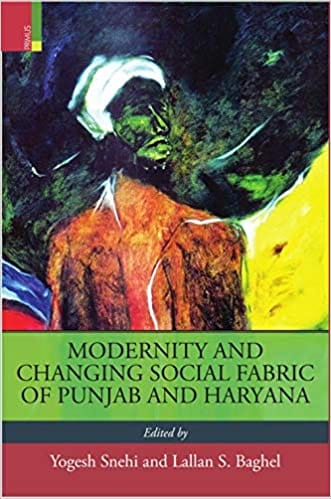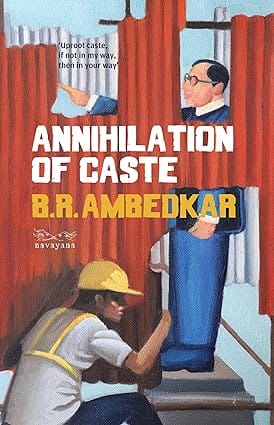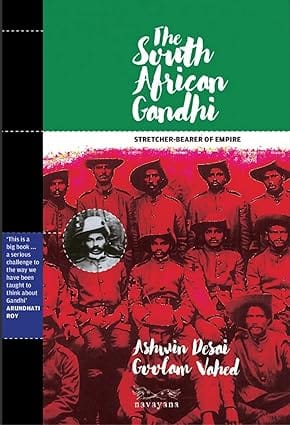WELCOME TO MIDLAND BOOK SHOP!
SHOP FOR
- Contemporary Fiction
- Contemporary Fiction
- Children
- Children
- Comics & Graphic Novels
- Comics & Graphic Novels
- Non-Fiction
- Non-Fiction
- Fiction
- Fiction
Shop No.20, Aurobindo Palace Market, Hauz Khas, Near Church +91 9818282497 | 011 26867121 110016 New Delhi IN
Midland The Book Shop ™
Shop No.20, Aurobindo Palace Market, Hauz Khas, Near Church +91 9818282497 | 011 26867121 New Delhi, IN
+919871604786 https://www.midlandbookshop.com/s/607fe93d7eafcac1f2c73ea4/6468e33c3c35585403eee048/without-tag-line-480x480.png" [email protected]9789386552983 637e12b6edc1e890da7b8e8c Modernity And Changing Social Fabric Of Punjab And Haryana https://www.midlandbookshop.com/s/607fe93d7eafcac1f2c73ea4/637e12b7edc1e890da7b8f6f/51zkqmghrkl-_sx329_bo1-204-203-200_.jpg 9789386552983
This eclectic collection of essays is embedded in both the past and present of the region's complex interface with modernity. It is pertinent to note that despite the postmodernist critiques of the abstract notion of the term modern, modernity continues to be relevant for an understanding of contemporary social processes. Apart from theoretical debates, 'modernity' as a process and value system as well as a contrast to 'tradition' provides multiple interpretative possibilities which are deeply manifested in the everyday experience of the self and community. While acknowledging both enchantment and disenchantment with modernity, this volume explores the opportunities, contingencies and contestations of the process. Spatializing modernity, therefore, takes the concept to the arena of experience and practice, thereby bringing it closer to the script of the everyday: the contradictory and at times polemical positioning of access and denial, institutional and individual, urban and rural, trader/moneylender and peasant/zamindar, Jat and Dalit (in context of landownership and access to wealth), and erotic/gender (urban) and ideal (rural). These and other similar themes involve self-positioning and Othering. Modern, modernity and modernization are, therefore, competing, contradictory and overlapping concepts that get situated around the narratives of power, prestige, entitlement and access.
About the Author
Yogesh Snehi teaches history at the School of Liberal Studies, Ambedkar University Delhi (AUD) and has been a fellow at the Indian Institute of Advanced Study, Shimla (2013-15). Through a Tasveer Ghar fellowship, he has created a digital repository of images that are in circulation at popular Sufi shrines in Punjab. His major teaching and research interests focus on regions and in situating popular veneration. Snehi's monograph 'Spatializing Popular Sufi Shrines in Punjab: Dreams, Memories, Territoriality' is forthcoming from Routledge. Lallan S. Baghel teaches philosophy at the Department of Philosophy, Panjab University, Chandigarh. His teaching and research focus on aspects of social and political philosophy; philosophy of human rights, philosophical foundations of feminist discourses, environmental philosophy, critical theory and applied ethics. Baghel has contributed numerous papers to various national and international publications.
out of stock INR 1036
1 1
Email ID already exists!
Your Current password is incorrect
Password Updated Successfully
Thanks for your Feedback
Modernity And Changing Social Fabric Of Punjab And Haryana
ISBN: 9789386552983
₹1,036
₹1,295 (20% OFF)SIZE GUIDE
Back In Stock Shortly
Sold By: Hauz Khas - Aurobindo Market
Details
- ISBN: 9789386552983
- Author: Yogesh Snehi & Lallan S Baghel
- Publisher: Primus Books
- Pages: 454
- Format: Hardback
Book Description
This eclectic collection of essays is embedded in both the past and present of the region's complex interface with modernity. It is pertinent to note that despite the postmodernist critiques of the abstract notion of the term modern, modernity continues to be relevant for an understanding of contemporary social processes. Apart from theoretical debates, 'modernity' as a process and value system as well as a contrast to 'tradition' provides multiple interpretative possibilities which are deeply manifested in the everyday experience of the self and community. While acknowledging both enchantment and disenchantment with modernity, this volume explores the opportunities, contingencies and contestations of the process. Spatializing modernity, therefore, takes the concept to the arena of experience and practice, thereby bringing it closer to the script of the everyday: the contradictory and at times polemical positioning of access and denial, institutional and individual, urban and rural, trader/moneylender and peasant/zamindar, Jat and Dalit (in context of landownership and access to wealth), and erotic/gender (urban) and ideal (rural). These and other similar themes involve self-positioning and Othering. Modern, modernity and modernization are, therefore, competing, contradictory and overlapping concepts that get situated around the narratives of power, prestige, entitlement and access.
About the Author
Yogesh Snehi teaches history at the School of Liberal Studies, Ambedkar University Delhi (AUD) and has been a fellow at the Indian Institute of Advanced Study, Shimla (2013-15). Through a Tasveer Ghar fellowship, he has created a digital repository of images that are in circulation at popular Sufi shrines in Punjab. His major teaching and research interests focus on regions and in situating popular veneration. Snehi's monograph 'Spatializing Popular Sufi Shrines in Punjab: Dreams, Memories, Territoriality' is forthcoming from Routledge. Lallan S. Baghel teaches philosophy at the Department of Philosophy, Panjab University, Chandigarh. His teaching and research focus on aspects of social and political philosophy; philosophy of human rights, philosophical foundations of feminist discourses, environmental philosophy, critical theory and applied ethics. Baghel has contributed numerous papers to various national and international publications.
User reviews
NEWSLETTER
Subscribe to get Email Updates!
Thanks for subscribing.
Your response has been recorded.

India's Iconic & Independent Book Store offering a vast selection of books across a variety of genres Since 1978.
"We Believe In The Power of Books" Our mission is to make books accessible to everyone, and to cultivate a culture of reading and learning. We strive to provide a wide range of books, from classic literature, sci-fi and fantasy, to graphic novels, biographies and self-help books, so that everyone can find something to read.
Whether you’re looking for your next great read, a gift for someone special, or just browsing, Midland is here to make your book-buying experience easy and enjoyable.
We are shipping pan India and across the world.
For Bulk Order / Corporate Gifting
 +91 9818282497 |
+91 9818282497 |  [email protected]
[email protected]
Click To Know More
INFORMATION
ACCOUNT
TRACK SHIPMENT
ADDRESS
Midland Book Shop - Hauz Khas
Shop No.20, Aurobindo Palace Market, Near Church, New Delhi
Shop No.20, Aurobindo Palace Market, Near Church, New Delhi













